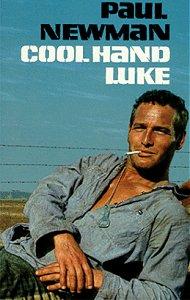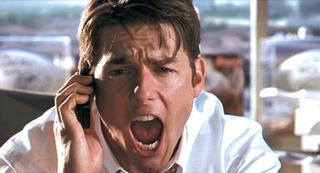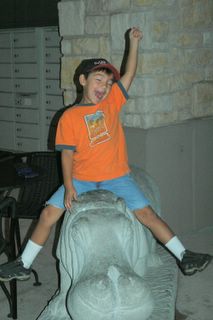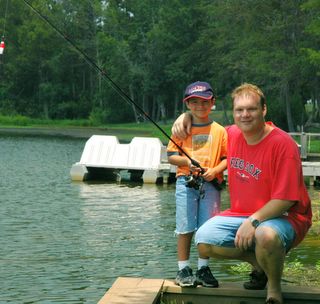I'm wondering how interesting this will be to other people. I guess I'm even wondering how interesting this is to me...
I'm working on selling something to a customer right now--I thought I would lay out my thought process. The funny thing is--I don't know if I'm getting the order or not. The reason I picked this one is that this is a tough one.
Step 1.
Initial Contact. The customer called me last Wednesday and told me he is interested in purchasing...a relatively large order, but not the biggest in the world--suffice it to say, it would make my week (but not my month) be much happier. We talked over the phone, and I could tell right away that he had some preconceived ideas about what he wanted, was fairly well informed, but had been using some very old equipment. Whatever I bring in will definitely "wow" him. He didn't mention other competition (there are 3 competitors: 1 will be similar quality to mine but a higher price, 1 will be lower quality than mine but about 10% lower price, 1 is unpredicatable on quality and price and usually doesn't return their phone calls). None of them gives service to this facility to the same degree as me, but a lot of times customers don't think they need service (of course, until they really need it) so they don't figure that in no matter how annoyingly you bring it up to them--I need to think of a better way to highlight this.
Normally, demonstrations take a couple of weeks to set up, but I happened to know while I was talking on the phone that I had every piece of specialized equipment that he was requesting so I committed to coming in in 2 days. My goal was to out-hustle my competitors and hopefully claim the order before they even responded.
My thought was: If I am the first one in to show him equipment, then I get to reap the benefit of the "wow" factor. The downside is that, if he does a comparison with my competitors' equipment, they will all be much better than he is used to using and he could lump us all together and go for the lowest price, which we will not win. In other words, we can't differentiate ourselves enough to justify a price advantage because everything is new technology to him, and the differences subtle compared to the overall jump in quality.
Step 2.
First meeting. In this case, our first meeting was a demonstration. I brought in tons of equipment but expected to be in and out in about 1-2 hours. No way. He called in multiple groups through multiple departments and, unexpectedly, I was there over 8 hours!
The guy is relatively conservative, a little older than my average customer, and he was playing things quite close to the vest, being careful not to get too excited about anything because, I believe, he thought this would give me an unfair advantage (ie. if he likes it I won't discount as aggressively) Now to me, this doesn't make a lot of sense--I don't think I've ever felt good about buying something that I got a good price on but wasn't what I wanted....nevertheless it is a common negotiation method. Once I realized this, I realized that I couldn't read this guy too well. He had a great poker face.
Then he told me that he was definitely going to shop the competition, saying he felt obligated to do so to appease the purchasing department of the company. So, my "wow" factor is definitely going to be diminished. It is commonly believed that the last person to demonstrate holds a definite advantage in a negotiation. The first demonstration has to definitely be better to win. Not being able to read this guy, it was a hard call. A couple of times during the demonstration, he let his guard down--one time I caught him telling a colleague that he was able to get clearer data than had ever been documented before, and in another case he told me that something was "just extraordinary." Truly, it
was breathtaking (if you're into his sort of work)--but he quickly composed himself.
Another thing that was positive was that we went to lunch (if you read my entry on "Running around on Empty", it was about this day--I drove him around on an empty tank in my dirty car)--I always think it is a good sign if you can eat or drink (coffee or coke) with a customer--it increases familiarity without being cheesy). He was nice but reserved.
Step 3.
Following up. I put together a very professional proposal. I incorporated some of the data that we collected during the demonstration, including graphic images that we collected--I montaged them into a very impressive proposal and had it bound--NOBODY else in the industry does anything like this, and it was very impressive if I say so myself. When I gave it to him (I hand-delivered it), he kept his poker face on and just nodded. To me, this tipped his hand of trying to be very reserved and not show any enthusiasm for my proposal (no, I'm not being delusional--it was a NICE proposal).
He did tell me that the price was in line with what he was expecting to pay, that it fell within his budget, and that it seemed reasonable. He also asked me what we call "buying indicators", which are questions that show that he is thinking toward the next step of buying (ie. "Does the equipment fit on this table?" "How would you modify this room to work with your system?" "What kind of computer should I get to run this?") So this was a good sign, but no smile--I felt like he was trying to remain objectively removed, so it wouldn't be personal if he didn't buy.
Here was my goal: I felt like my competitors would take forever to get back to this guy (seems like they already are doing this as expected). I wanted to give him the royal treatment and hopefully raise the bar for those other yo-yo's. When they show up and act ditzy and disorganized and unprepared and unknoweldgeable, I want the customer to go back to his office, look at my proposal, and be irritated that they suck so bad and feel like he has no choice but to go with me. He seems like the kind that will be irritated with incompetence. I even prepared a list of unique "lockout" features so he can justify to the accounting department why he is paying 5% more for our system.
A downside: It could look like I'm trying too hard, putting in a disproportionate effort to win a medium-sized order. He could completely discount any extra effort and just go from his perceived results from other demonstrations (it is almost impossible to compare two manufacturer's components fairly--which is ironic). Then it would be up in the air.
A positive in my favor: Someone in an adjacent building has almost exactly the same unusual mix of equipment--bought it last year, and he's thrilled with it and told this new guy so. Also, this new customer is from Canada, and the other guy is from Canada. But: maybe new Canada guy doesn't want to feel pushed into going with the same stuff as old Canada guy...who knows? Maybe he wants to be unique and feel like he's being risky (to me, that's the only reason people buy from that wacky 4th competitor, but sometimes it does mysteriously happen and then the customer is puzzled when nobody comes to put it together, or actually ever comes back again to help them in any way).
Step 4.
Closing. I'm not at that point yet--it will happen in 2 days. There was one other aspect of the equipment that the customer would like to examine. I am getting 6 small components overnighted to me from across the country and we are going to look at them on Canada guy #1's equipment on Thursday. Then I am going to ask for this new guy's business). I bet my competitor won't even have demosntrated or assembled his anticipated low-ball quote yet.
The good news is: I really believe that if he doesn't buy this machinery from me, he is going to lose out. Nobody is going to take as good care of him as I will! I'll keep you posted on what happens.







